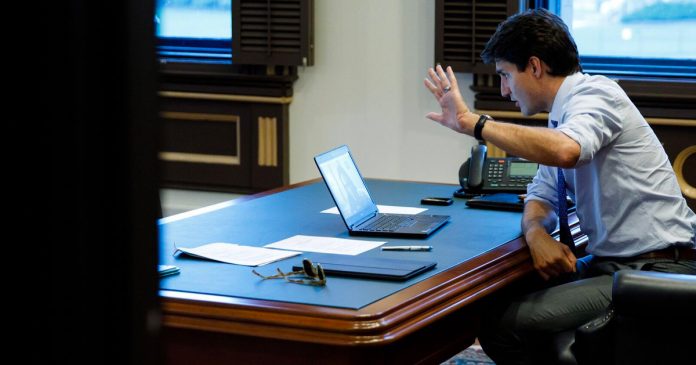NOTE FROM THE EDITOR: An earlier version of this article did not properly attribute this research to Blacklock’s Reporter, who first published the information in this report. We regret this error and apologize to Blacklock’s.
Canadians do not trust the Liberal government to regulate the Internet, research by the Privy Council Office released on Tuesday.
“They generally favoured an environment in which free speech is promoted even if that meant offensive comments or material may appear online,” read the report. “A number of participants firmly supported free speech, commenting that a divergence of opinions and lively debate are vital to a healthy society.”
As first reported by Blacklock’s Reporter, most respondents expressed concerns about online hate speech and cyberbullying of minority groups. Respondents agreed that online child sexual exploitation and sexting were significant issues in Canada and around the world.
Participants were asked whether the Canadian government should be involved in tackling online hate or whether it should be left up to social media platforms. Most said it should be left up to social media.
“Their initial impression was that the Government of Canada could do little to regulate social media companies which were headquartered in foreign jurisdictions and they generally felt that cases of malicious or criminal online activity should be actively and rigorously pursued by law enforcement groups,” stated the report. “They also viewed the social media companies themselves as being primarily responsible to self-regulate.”
A similar question was asked about possible actions social media companies could take to combat online hate. Participants said the best approach would be to implement stricter penalties for repeat abusers.
The Liberals introduced two bills proposing Internet regulations in the last Parliament, but both died after the session was dissolved for the 2021 election.
Bill C-10 would have seen the Canadian Radio-television and Telecommunications Commission (CRTC) regulate YouTube videos as if they were television shows.
Bill C-36 could have subjected people to $70,000 fines for content that might “foment detestation or vilification” of an identifiable group.
Heritage Minister Pablo Rodriguez told the House of Commons Finance Committee that dealing with online hate is “a priority” for the Canadian government and that a new bill to regulate the Internet will be introduced soon.
“It’s going to be a very good bill,” Rodriguez said. “I am sure you will be satisfied with many sections, if not all of the bill.”





















